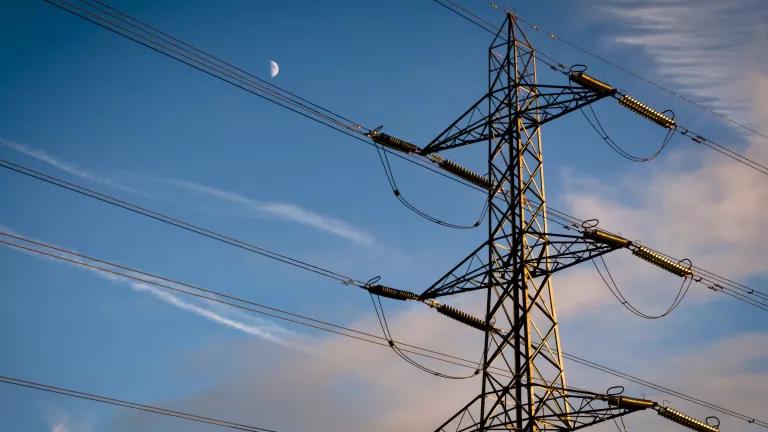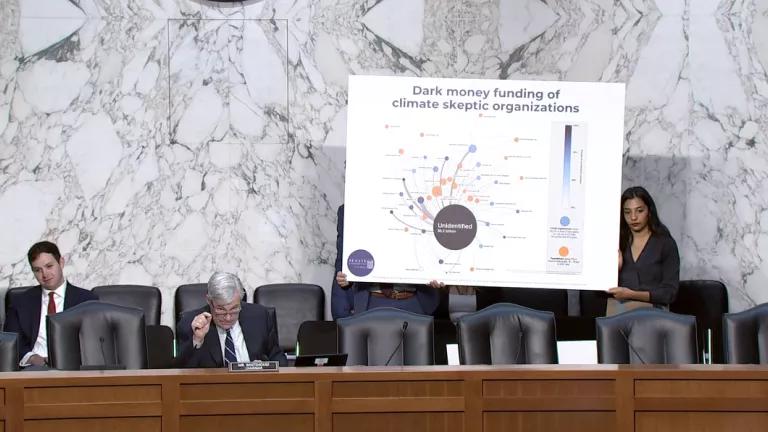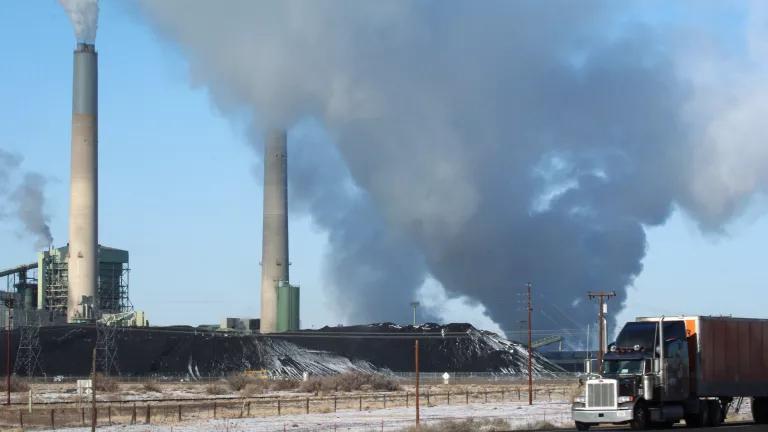
Shell's drill rig, the Kulluk, ran aground New Year's Eve.
U.S. Coast Guard Petty Officer 3rd Class Jonathan Klingenberg.
This Saturday marks the third anniversary of the BP blowout that killed 11 men aboard the Deepwater Horizon and sent some 170 million gallons of toxic crude oil gushing into the Gulf of Mexico, in what President Obama called the worst environmental disaster in our history.
Three years later, the Gulf continues to struggle, while offshore drilling forges ahead. Congress has yet to act to make this industry safer for our workers, waters and wildlife. And yet another source of irreplaceable marine life and habitat, the Arctic Ocean, is in the sights of the oil industry for priority development.
It's time we learned the lessons of the BP disaster, and acted upon them to make our oceans and coastlines safer.
Within weeks of the blowout three years ago, President Obama named an independent commission and asked it to find out what went wrong and what steps we might take to reduce the risk of anything like this ever happening again.
I was honored to serve on that panel, the National Commission on the BP Deepwater Horizon Oil Spill and Offshore Drilling. And I'm proud of the recommendations we made.
It's not enough, though, to suggest change and step quietly aside, not when the stakes for our fragile coastal and marine environments are so high.
That's why the seven of us who served on the commission have continued to stay engaged, as private citizens concerned for our future. We continue to monitor the progress made on adopting the Commission's recommendations and to call for the actions needed to reduce the risks of offshore drilling.
Today, we are releasing our second annual assessment, entitled, "Assessing Progress: Three Years Later." It's a report card on the progress made and the considerable work yet to be done.
We have assigned grades to the three key actors - the administration (B), the offshore drilling industry (B-); and the U.S. Congress (D+).
We found that the administration moved quickly to reorganize the widely criticized Minerals Management Service, dividing its responsibilities between two new agencies: the Bureau of Ocean Energy Management, Regulation and Enforcement and the Bureau of Safety and Environmental Enforcement (BSEE).
Inspectors have been added to improve oversight, and the administration has asked for additional funding to help the authorities do their job.
Last October, the BSEE implemented new safety rules that draw on lessons learned from the BP disaster to improve well design and integrity.
Earlier this month, the BSEE proposed a useful new rule to require that independent, third-party experts, rather than company employees, conduct periodic audits of offshore drill rigs and producing platforms.
The bureau is behind, though, in putting in place tougher rules on the design and operation of blowout preventers. That work needs to move forward quickly, to help make this critical piece of last-resort equipment safer and more reliable.
The oil industry itself has created equipment to help contain a high-pressure blowout in deep water, a direct response to the industry's inability to plug the BP well in a timely way three years ago.
The industry, though, is still dragging its feet on the need to create an independent safety institute to help build a culture that puts safety first, all the time. Instead, the industry is working to set up a Center for Offshore Safety under the auspices of its industry trade association, the American Petroleum Institute.
The center needs to be independent so it can focus on one mission: safety.
Inaction by the U.S. Congress has been the most notable failure.
In the three years since the spill, the Congress has enacted only one piece of legislation - the RESTORE Act last July - that is directly keyed to the BP disaster.
Under this act, 80 percent of the fines BP pays under the Clean Water Act will go toward environmental and economic restoration projects in the Gulf region.
That's important. Depending on the outcome of BP's ongoing trial before federal district court in New Orleans, those fines are expected to amount to somewhere between $5 billion and $20 billion.
The Congress, though, has done nothing to make offshore drilling safer. That's inexcusable.
Congress should act immediately to:
- Raise the liability cap and financial responsibility requirements for offshore facilities. The current strict liability cap of $75 million is woefully inadequate. It leaves the Gulf and its people at the mercy of any company that causes damage that it can't afford to pay to address.
- Similarly, raise the Oil Spill Liability Trust Fund's limitation on funds available for federal agency spill response.
- And make federal inspection and oversight of the offshore drilling industry a self-funding proposition, by instituting a fee structure through which the industry — not the taxpayers —foots the bill for needed public oversight.
The BP disaster should serve as a warning to all of us against putting irreplaceable habitat at needless risk. Unfortunately, that is exactly what we are allowing in the Arctic Ocean.
As a commission, we raised serious concerns about those risks, calling for additional research, both in the environmental conditions specific to the Arctic and in the industry's ability to prevent, contain, and clean up a spill there.
We're making progress in developing more information, but we still lack the equipment, systems and oversight needed to protect the Arctic from needless risk.
Beyond that, my position as NRDC president differs with that of the commission itself. At NRDC, we believe the Arctic needs to be off limits to drilling.
Last summer, Shell Oil began exploratory drilling in Arctic waters, under a permit granted by the Department of Interior.
Within days, the project began to go awry, when drill workers had to flee a 30-mile ice floe the company didn't anticipate.
An underwater containment rig collapsed during testing, after Shell claimed it could prevent a spill.
And last fall, Shell lost control of two drilling rigs, one of which drifted for miles through Arctic waters and had to be rescued from rocks by the Coast Guard.
This misbegotten experiment has taught us something: the oil industry is no match for the Arctic.
We can’t prevent, contain or clean up a spill there. New Interior Secretary Sally Jewell needs to put a stop to this reckless gamble before it's too late.
In the three years since the BP disaster, we've learned some hard lessons, as a country, about our costly and dangerous addiction to oil and the way it puts our future at risk.
As an enduring tribute to the memory of those we lost on the Deepwater Horizon, and to those who continue to put their lives on the line every day in search of oil in the Gulf, we must stand up and insist that our elected leaders do everything possible to reduce the risks of this hazardous work.
For the sake of future generations, we must require that every reasonable safeguard be taken to ensure the health of the Gulf and its people.
And, for the sake of our national future, we must invest in the efficiency improvements and renewable sources of energy we need to reduce our reliance on oil, so the day will come when we can power our country forward without putting our workers, wildlife and waters at needless and excessive risk.



